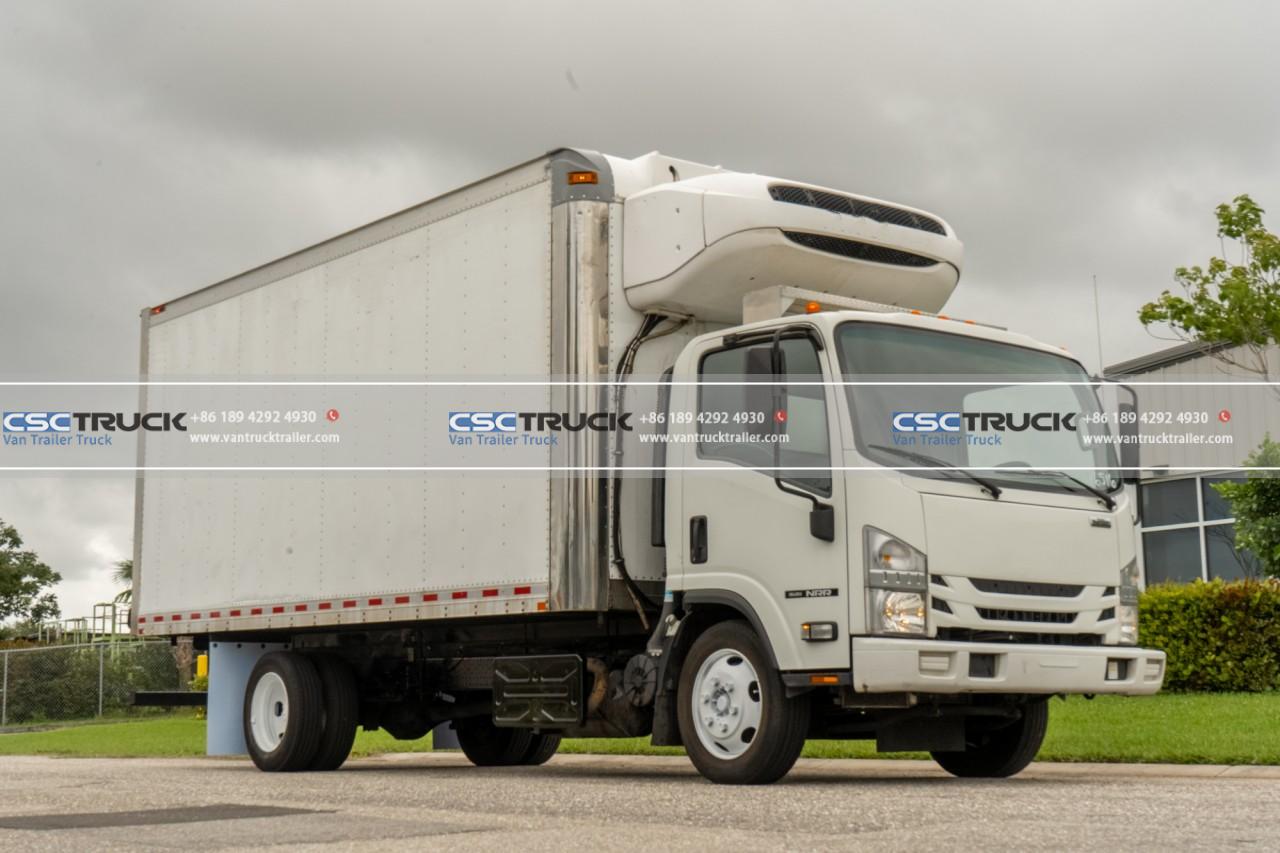In today’s globalized world, the transportation of perishable goods is essential to meet the growing demands of consumers. Whether it’s fresh produce, dairy products, pharmaceuticals, or even flowers, maintaining the optimal temperature during transportation is crucial to preserve the quality and safety of these goods, this is where refrigerated trucks, also known as reefer trucks, play a vital role. These specialized vehicles are designed to provide a controlled environment, ensuring that perishable goods reach their destination in pristine condition. In this article, we will explore how refrigerated trucks ensure optimal temperature control for perishable goods.
Refrigerated trucks are equipped with advanced cooling systems that regulate the temperature inside the cargo compartment. The cooling system consists of a compressor, condenser, evaporator, and refrigerant. The process starts with the compressor, which compresses the refrigerant gas, raising its temperature and pressure. The high-pressure gas then flows into the condenser, where it releases heat and transforms into a high-pressure liquid. The liquid refrigerant then passes through the expansion valve, which reduces its pressure, causing it to evaporate and turn into a low-pressure gas. This gas absorbs heat from the cargo compartment through the evaporator, thus cooling the space. The process repeats itself to maintain the desired temperature range.
To ensure optimal temperature control, refrigerated trucks use advanced temperature monitoring and control systems. These systems employ sensors placed strategically throughout the cargo compartment to measure the temperature continuously. The sensor readings are transmitted to a central control unit, which monitors and adjusts the cooling system accordingly. If the temperature deviates from the set range, the control unit triggers the necessary actions to bring it back to the desired level. This ensures that the perishable goods remain within the specified temperature range throughout the journey.

Another critical factor in maintaining optimal temperature control is the insulation of the cargo compartment. Refrigerated trucks are built with highly efficient insulation materials to minimize heat transfer between the external environment and the cargo area. The walls, floor, and ceiling of the cargo compartment are lined with thick insulating panels that reduce thermal conductivity. This insulation helps to preserve the cool air inside and prevent external heat from entering the compartment, ensuring a stable and controlled temperature environment.
In addition to temperature control, refrigerated trucks also provide humidity control to safeguard the quality of perishable goods. High humidity levels can promote the growth of bacteria and fungi, leading to spoilage. To prevent this, refrigerated trucks incorporate humidity control mechanisms. These systems remove excess moisture from the cargo compartment, maintaining the humidity at optimal levels. By controlling both temperature and humidity, refrigerated trucks create an ideal environment for perishable goods, ensuring their freshness and extending their shelf life.
Refrigerated trucks also have backup power systems to ensure uninterrupted cooling during transportation. Power outages or mechanical failures can be disastrous for perishable goods, as they can spoil quickly when exposed to unfavorable conditions. To mitigate this risk, refrigerated trucks are equipped with backup power sources such as generators or battery systems. These backup systems kick in automatically when the main power source fails, providing continuous cooling and ensuring that the temperature remains stable until the issue is resolved.

Furthermore, refrigerated trucks undergo regular maintenance and inspections to ensure their optimal performance. Mechanical components, such as the compressor, condenser, and evaporator, are checked and serviced to prevent any malfunctions that could compromise the temperature control. The insulation integrity is also assessed to ensure there are no gaps or damages that could lead to heat leakage. Regular maintenance and inspections help to identify and address any issues before they affect the quality of the transported goods.
In conclusion, refrigerated trucks are essential for maintaining optimal temperature control during the transportation of perishable goods. Through their advanced cooling systems, temperature monitoring and control mechanisms, efficient insulation, humidity control, backup power systems, and regular maintenance, refrigerated trucks create a controlled environment that ensures the freshness and quality of perishable goods.
The advanced cooling systems of refrigerated trucks, consisting of compressors, condensers, evaporators, and refrigerants, play a crucial role in maintaining the desired temperature range. By compressing and expanding the refrigerant gas, heat is removed from the cargo compartment, effectively cooling the space. This process is continuously monitored and adjusted by the control unit based on sensor readings to ensure that the temperature remains within the specified range.

The insulation of the cargo compartment is equally vital in temperature control. Refrigerated trucks are constructed with high-quality insulation materials that minimize heat transfer. The insulation acts as a barrier, preventing external heat from entering the cargo compartment and preserving the cool air inside. This insulation helps maintain a stable temperature environment, regardless of external weather conditions and contributes to energy efficiency by reducing the workload on the cooling system.
Humidity control is another critical aspect of refrigerated trucks. Excessive humidity can lead to moisture buildup and the growth of bacteria and fungi, jeopardizing the quality and safety of perishable goods. Refrigerated trucks incorporate humidity control systems to regulate the moisture levels within the cargo compartment. These systems remove excess moisture, ensuring that the humidity remains at optimal levels, thus preventing spoilage and preserving the freshness of the goods.
To ensure uninterrupted temperature control, refrigerated trucks are equipped with backup power systems. Power failures can occur during transportation, posing a significant risk to perishable goods. Backup power sources, such as generators or battery systems, kick in automatically in case of power outages or mechanical failures. These backup systems provide continuous cooling, ensuring that the temperature remains stable until the issue is resolved, and preventing any detrimental effects on the perishable goods.

Regular maintenance and inspections are essential to keep refrigerated trucks in optimal working condition. Mechanical components, such as compressors and evaporators, need to be regularly checked and serviced to prevent malfunctions that could disrupt temperature control. Additionally, the integrity of the insulation is assessed to identify any gaps or damages that could compromise the efficiency of the cooling system. Routine maintenance helps detect and address potential issues before they impact the quality of the transported goods, ensuring a smooth and reliable operation of refrigerated trucks.
In conclusion, refrigerated trucks play a vital role in ensuring optimal temperature control for perishable goods during transportation. With their advanced cooling systems, temperature monitoring and control mechanisms, efficient insulation, humidity control, backup power systems, and regular maintenance, these specialized vehicles create a controlled environment that preserves the freshness, quality, and safety of the goods. The ability to maintain the desired temperature range throughout the journey is crucial in meeting consumer demands and ensuring the supply of perishable goods across various industries. By utilizing refrigerated trucks, businesses can confidently transport their perishable products while maintaining their integrity and meeting the high expectations of consumers worldwide.

